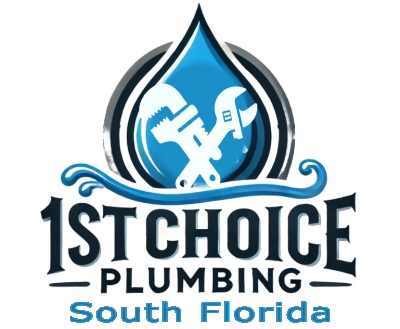In Florida, a water heater typically lasts between 8 to 12 years, depending on the type, maintenance, and water quality. However, coastal humidity, hard water, and frequent use can shorten its lifespan.
Factors That Affect Water Heater Lifespan in Florida
- Type of Water Heater
- Traditional Tank Water Heaters: Usually last 8-12 years with proper maintenance.
- Tankless Water Heaters: Can last 15-20 years due to their on-demand heating system.
- Hard Water Issues
- Florida has hard water, which leads to mineral buildup inside the tank and heating elements, reducing efficiency.
- Corrosion from Humid Climate
- High humidity and salt air (in coastal areas) can cause faster corrosion of tank components.
- Usage & Maintenance
- Regular flushing to remove sediment buildup can extend lifespan.
- Replacing the anode rod every few years prevents rust inside the tank.
When to Replace a Water Heater
🔹 Rusty or discolored water
🔹 Leaking tank or water pooling around the unit
🔹 Strange noises (popping or rumbling)
🔹 Inconsistent hot water or long heating times
If your water heater is over 10 years old, consider calling 1st Choice Plumbing for an inspection or replacement. They offer professional water heater services in Palm Beach County, ensuring your home has reliable hot water year-round.
📞 Call 1st Choice Plumbing today for expert water heater installation and maintenance! 🚰🔥
Types of Water Heaters: A Complete Guide
Choosing the right water heater is essential for efficiency, cost savings, and meeting your household’s hot water needs. Here are the most common types of water heaters available:
1. Conventional Storage Tank Water Heaters
How They Work:
- Store and continuously heat a large volume of water (typically 20–80 gallons) in an insulated tank.
- Heated water rises to the top and is delivered to faucets when needed.
Pros:
- Lower upfront cost.
- Simple installation and maintenance.
- Widely available.
Cons:
- Higher energy consumption (standby heat loss).
- Limited hot water supply (can run out during heavy use).
Best For:
- Budget-conscious homeowners.
- Households with moderate hot water needs.
2. Tankless (On-Demand) Water Heaters
How They Work:
- Heat water instantly as it flows through the unit using gas burners or electric coils.
- No storage tank—provides endless hot water on demand.
Pros:
- Energy-efficient (no standby heat loss).
- Unlimited hot water supply.
- Compact size saves space.
Cons:
- Higher initial cost.
- Limited flow rate (may struggle with multiple simultaneous uses).
Best For:
- Small households or point-of-use applications.
- Those prioritizing energy savings.
3. Heat Pump Water Heaters (Hybrid)
How They Work:
- Extract heat from the surrounding air or ground to warm water (instead of generating heat directly).
- Use electricity to move heat rather than produce it.
Pros:
- Highly energy-efficient (can save 50–60% on energy costs).
- Eco-friendly (lower carbon footprint).
Cons:
- Higher upfront cost.
- Requires warm ambient temperatures (less efficient in cold climates).
Best For:
- Warm climates.
- Homeowners looking for long-term energy savings.
4. Solar Water Heaters
How They Work:
- Use solar panels (collectors) to absorb sunlight and heat water, which is stored in a tank.
- Often paired with a backup system (electric or gas) for cloudy days.
Pros:
- Extremely energy-efficient (free solar energy).
- Environmentally friendly.
Cons:
- High installation cost.
- Dependent on sunlight availability.
Best For:
- Sunny climates.
- Eco-conscious homeowners willing to invest in renewable energy.
5. Condensing Water Heaters
How They Work:
- Use a tank like conventional heaters but capture and reuse exhaust gases to heat water.
- Ideal for homes using natural gas.
Pros:
- More efficient than standard gas heaters.
- Good for large households with high hot water demand.
Cons:
- Requires natural gas hookup.
- Higher initial cost than standard tank heaters.
Best For:
- Gas-powered homes needing high-efficiency heating.
6. Point-of-Use Water Heaters
How They Work:
- Small, tankless units installed near a single faucet or appliance (e.g., under a sink).
- Provide instant hot water without long pipe runs.
Pros:
- Eliminates wait time for hot water.
- Energy-efficient (no standby loss).
Cons:
- Limited to one fixture at a time.
Best For:
- Remote bathrooms or kitchens.
- Supplemental heating in large homes.
Which One Should You Choose?
- Budget-friendly? → Conventional storage tank.
- Endless hot water? → Tankless.
- Energy savings? → Heat pump or solar.
- High demand? → Condensing or large tankless.
- Supplemental heating? → Point-of-use.
If you need help selecting the best water heater for your home, consult a licensed plumber for personalized recommendations!

